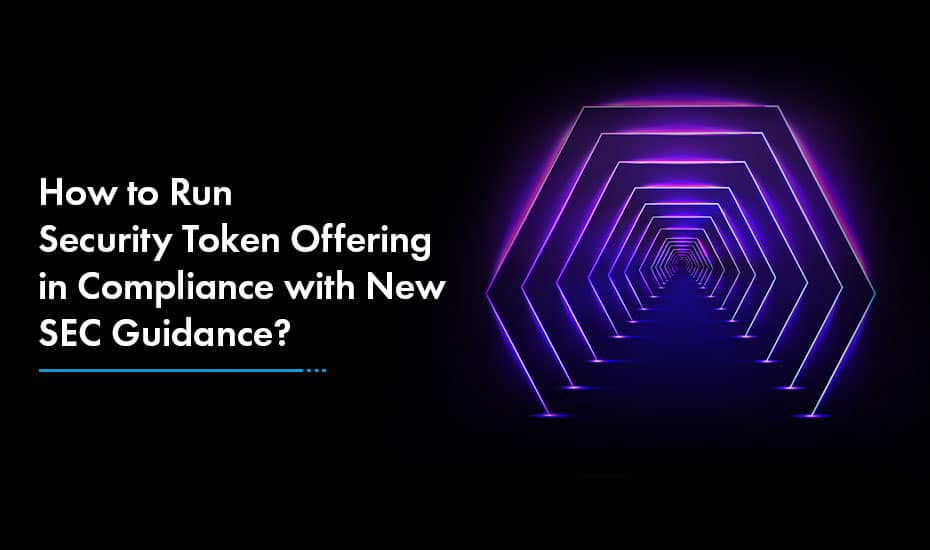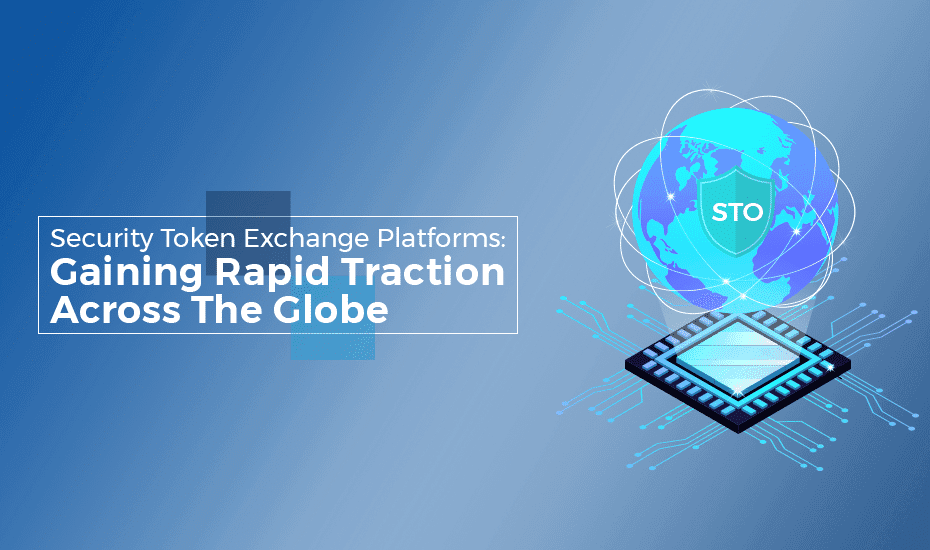Initial Coin Offerings (ICOs) brought transformational wave of fundraising to the cryptocurrency market, making it easier for businesses to raise funds for their projects. ICOs raised over $22 billion in just 2 years. However, the increase in popularity of ICOs led to the proliferation of ICO scams. It is estimated that investors lost over $100 million in ICO scams.
To control these events, the U.S. Securities and Exchange Commission (SEC) started cracking down on ICOs. The SEC has put forth a framework to determine if a token sold in an ICO is under their regulatory purview.
In the wake of the downfall of Initial Coin Offerings arouse the need for a regulatory compliant token, hence security token. The industry is shifting towards Security Token Offering (STO), to capitalize on legal fundraising. Thus, the demand for security token development services is also increasing. Since security tokens are backed by a legal framework, regulatory compliance is indispensable. Other considerations to run a successful STO include technology infrastructure and secondary market.
Regulation governs how to conduct the STO, who can be approached to raise funds and what are the restrictions on the tradable asset after its launch. Technology infrastructure includes secure storage and transaction execution, and determines ecosystem interoperability. Secondary markets are the platforms for investors to trade security tokens.
Regulation
The idea behind fundraising through security token offering is to raise money from investors without the registration burden of an Initial Public Offering.
However, there are varying degrees of regulation to launch the Security Token Offering, depending on how much you plan on raising, from whom you plan to raise and how you plan to do it.
A clear intend to launch the STO helps determine the SEC regulations that need to be adhered. The STO that has been launched simply to raise the funds has to comply with different set of regulations compared to the STO launched with the idea to get the funds in the hands of customers.
An experienced security token development company that offers comprehensive STO development services can help address all of the legal aspects related to the STO. Partnership with such a company can help in successful launch of SEC-compliant STO.
Technology
Primarily, it is important to consider on which blockchain the token will be created. Next, there is a need to decide upon the design of the token so it is both secure and interoperable with the market.
Most token issuers choose to standardize on the ERC-20 standard. It creates a new ledger with its own native token or unit of account on top of Ethereum blockchain. The major reasons attributed to worldwide acceptable of ERC-20 are its simplicity of design and ease of interoperability.
It is important to design a token with interoperability in mind. Choosing the wrong standard is more likely to deter investors from securely storing their tokens. In addition, secondary markets may lack the capability to host such tokens. The wide network for ERC-20 standard enables most cryptocurrency exchange platforms and wallets to easily integrate ERC-20 based tokens.
Given that security tokens need to comply with regulations around who can buy, trade and interact with tokens, companies have created new standards. They take the ERC-20 model and include additional complexities, like address whitelistings and locking, to enable tokens to adhere to security regulations. These new standards are ERC-20 backwards compatible. It means that any cryptocurrency exchange or wallet that can host ERC-20 tokens already has some or complete infrastructure required to easily host a token built on new standard.
The cryptocurrency market offers various other standards, except for ERC-20, to build security tokens. Considering business needs and selecting the right standard accelerate the development of SEC-complaint security token.
Secondary Markets
Secondary markets are the platforms where STO investors can sell their tokens in an open market. Secondary markets are extremely essential for a successful STO as they provide the investors with a way to trade.
When considering security token exchange platforms as a secondary market, businesses can choose between two options – centralized and decentralized exchange. Centralized exchanges are regulated and user-friendly. With decentralized exchanges, users need to manage their private keys on their own. Furthermore, there is a greater reliance on smart contracts.
Security tokens are fueling the future of legal fundraising and unlocking better opportunities to raise funds. Businesses that comply with SEC regulations, partner with the right security token development company to steer their STO journey, and have the right marketing strategy in place can enjoy the real benefits of STO and position themselves for growth.
Frequently Asked Questions
01. What are Initial Coin Offerings (ICOs) and why did they become popular?
ICOs are a fundraising method in the cryptocurrency market that allows businesses to raise funds for their projects. They became popular because they raised over $22 billion in just 2 years, providing an accessible way for startups to secure financing.
02. What issues arose with the popularity of ICOs?
The popularity of ICOs led to a rise in scams, resulting in investors losing over $100 million. This prompted regulatory bodies like the U.S. Securities and Exchange Commission (SEC) to crack down on ICOs to protect investors.
03. What is a Security Token Offering (STO) and how does it differ from an ICO?
An STO is a fundraising method that complies with regulatory frameworks, aiming to raise money without the burdens of an Initial Public Offering (IPO). Unlike ICOs, which have faced scrutiny and scams, STOs are backed by legal frameworks ensuring regulatory compliance.






